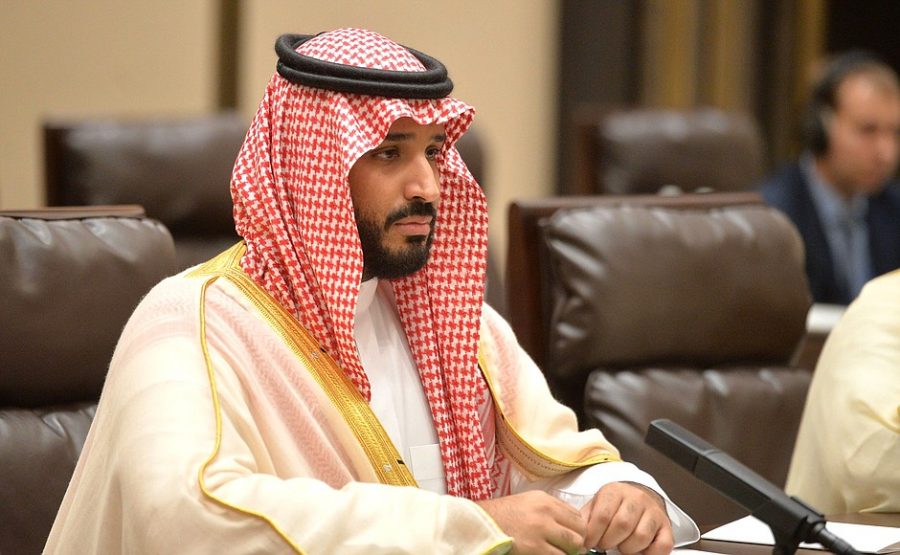The Price of Our Values
Ever since the mysterious disappearance and supposed death of Saudi journalist Jamal Khashoggi, the United States has struggled to take a firm position on how to move forward with Saudi Arabia. It has been reported that Saudi Arabian prince Mohammed bin Salman, or MBS, ordered the assassination of Khashoggi while he was in the Saudi consulate in Istanbul. While America previously had plausible deniability when it came to the issue of a government killing a journalist, the CIA recently briefed the U.S. Senate on its conclusion that MBS was indeed responsible for Khashoggi’s death. As it becomes more apparent that Saudi Arabia’s actions directly conflict American values, the question becomes whether or not our allied relationship is worth maintaining.
The United States, over the years, has typically had two types of allies. The first type are nations we ally with because we share common core beliefs. This is the case with many European nations, such as the United Kingdom, France, and Germany. We typically ally ourselves with what most people would consider ‘free countries’. Countries that believe in freedom, prosperity, and working together to create a free world make great partners to help us achieve our common goals. Not only do these allies make international diplomacy easier, but we can also count on them to remain trustworthy and have our backs against our common enemies. Because we believe in the same things, we want the same things, and have the same friends and the same enemies.
The second kind of country America allies itself with creates a very different relationship. We ally with countries like this strictly because the relationship is useful. In the case of Saudi Arabia, we continue our relationship to maintain a foothold in the ever changing Middle East. The region is home to a variety of nations with a pantheon of different geopolitical problems. Syria is host to a multi faceted war between the government, rebel soldiers, and terrorist groups. Israel is home to a decades old territory conflict between the Israelis and the Palestinians. People in other countries like Iran, Iraq, and Afghanistan have fallen victim to large amounts of terrorism over the years. One can understand the need for the United States, which has been involved in some manner in many of the aforementioned conflicts, to have allies in the region. We need friends, regardless of how we feel about them, as a basis for pursuing our interests in nearby countries. The United States also often engages in expensive arms deals with Saudi Arabia, the most recent of which will see them spend $110 billion on military equipment, including tanks, fighter jets, and combat ships. In the wake of the Khashoggi assassination America has to decide if our alliance is useful enough for us to ignore the blatant differences between our ethics.
In America, the right to a free press, unadulterated by the government, is one of our most defining values. A positive relationship between our journalists and our government is necessary to facilitate real representation. The checks and balances the media puts on elected officials are equally important to the checks and balances that take place within the government itself. Despite these beliefs, we now insist on continuing to make deals with Saudi Arabia, a country that goes far beyond disagreeing with these values, a country whose government silences dissenting opinions rather than refuting them in open discussion, a country whose leader knowingly ordered the death of a legal United States resident without undertaking much effort to cover his tracks. Mohammed bin Salman’s actions have presented a fascinating moral quandary: what exactly is the price of our values? Is $110 billion worth looking the other way? By providing the Saudis with weapons, are we complicit in their actions? Are we supporting Salman’s despotism, encouraging similar actions in the future?
Since the second World War, America has been the ethical and moral leader of the free world. We’ve positioned ourselves as a beacon of freedom, the most perfect example of a free country to yet exist on this earth. These titles don’t come without cost. The United States has a massive responsibility to support and defend its ideals, and to avoid at all costs supporting governments that suppress the freedoms of their people, especially when it is done in a manner so blatantly as Saudi Arabia.
The American economy is by no means dependent on foreign arms deals, regardless of the the other party involved. Our nearly $22 trillion national debt and $833 billion budget deficit tower over the $110 billion deal with Saudi Arabia. On top of that, the Saudis have only spent $14.5 billion so far, with no guarantee that the rest of the deal will be fulfilled. We do not rely on the completion of this deal for any potential program or policy, so there is no reason to compromise on our values.
In the end, we must all ask ourselves how far we are willing to stray from our beliefs for material benefit. Not only do we break symbolic rules for international conduct, but we also leave the door open for other nations to follow suit. America has set the precedent that there are no repercussions for murdering members of the media. In order to halt similar wrongdoings on the part of Saudi Arabia and other nations around the globe, the United States must swiftly halt all deals that might benefit the Saudis. The recent findings of the CIA have presented the perfect opportunity for our government to do the right thing, and to ignore this opportunity would undoubtedly send us down a dangerous path for democracy.









